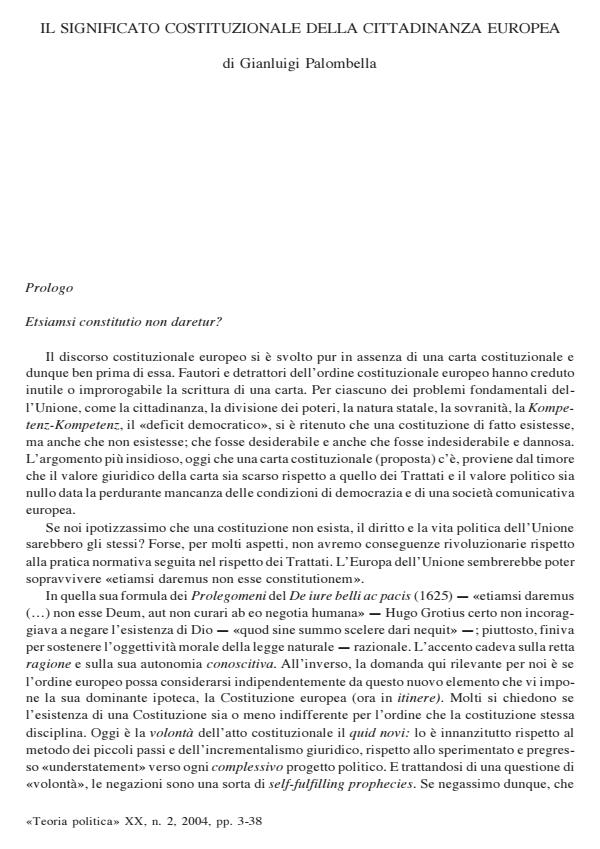Il significato costituzionale della cittadinanza europea
Titolo Rivista TEORIA POLITICA
Autori/Curatori Gianluigi Palombella
Anno di pubblicazione 2004 Fascicolo 2004/2
Lingua Italiano Numero pagine 36 P. Dimensione file 197 KB
DOI
Il DOI è il codice a barre della proprietà intellettuale: per saperne di più
clicca qui
Qui sotto puoi vedere in anteprima la prima pagina di questo articolo.
Se questo articolo ti interessa, lo puoi acquistare (e scaricare in formato pdf) seguendo le facili indicazioni per acquistare il download credit. Acquista Download Credits per scaricare questo Articolo in formato PDF

FrancoAngeli è membro della Publishers International Linking Association, Inc (PILA), associazione indipendente e non profit per facilitare (attraverso i servizi tecnologici implementati da CrossRef.org) l’accesso degli studiosi ai contenuti digitali nelle pubblicazioni professionali e scientifiche.
Whether the Constitution to be signed adds anything to the conception of citizenship worked out in the Maastricht and Amsterdam treaties is a question which has to be addressed. European (non cosmopolitan) organization is structured in such a way as to reflect the converging role of bodies accountable respectively ton the states and the «european» citizens. EU has now its own goals which require a reflexive awareness different from the one required for the mere regulation of the market: people can not be treated as mere clients of public policies. The nature of citizenship depends on premises of organizational nature (the existence of two sources of power), of socio-historical nature (the non individualistic character of its institutional goals, among which the union of peoples stands out), of procedural nature (the production of a common point of view), and political-legal nature (the function of power as linked to the conception of rights as goals).
Gianluigi Palombella, Il significato costituzionale della cittadinanza europea in "TEORIA POLITICA" 2/2004, pp , DOI: